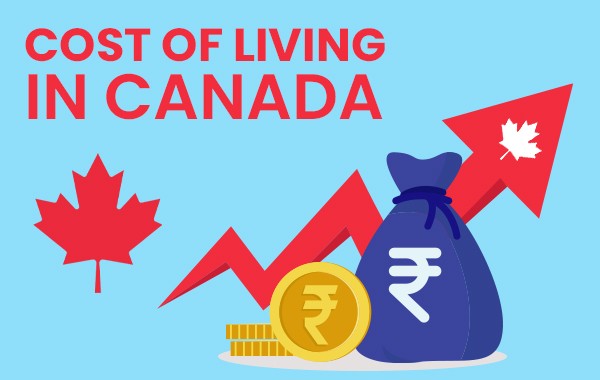Canada, known for its stunning landscapes, diverse culture, and economic opportunities, is a welcoming destination for immigrants from around the world. However, before you make the move, it’s essential to understand the cost of living in Canada. This comprehensive guide is designed to help new immigrants navigate the financial aspects of their new life in this vibrant country.
Understanding the Cost of Living in Canada
Canada’s cost of living can vary significantly depending on the region you choose to settle in. Generally, the cost of living in larger cities, such as Toronto and Vancouver, tends to be higher than in smaller towns and rural areas. Here are some key factors to consider:
- Housing Costs: Housing is one of the most significant expenses for residents in Canada. The cost of rent or purchasing a home can vary widely, but it’s often a major portion of the budget. Be prepared to spend more if you decide to live in a major city or popular urban centers.
- Food and Groceries: The cost of food can vary based on where you live and your dietary preferences. Generally, groceries are more affordable in rural areas, and prices may be slightly higher in city centers.
- Transportation: Canada has an extensive public transportation system, but costs can add up if you rely on it regularly. Fuel and vehicle-related expenses may also impact your budget.
- Healthcare: Canada offers a publicly funded healthcare system, but some healthcare costs may not be covered, such as prescription medications and dental care.
- Education: If you have children, consider the costs associated with their education. Public schools are free, but there may be expenses related to extracurricular activities and private education options.
Financial Planning for New Immigrants
To ensure a smooth transition to life in Canada, it’s crucial to develop a financial plan. Here are some steps to consider:
- Budgeting: Create a detailed budget to track your income and expenses. This will help you allocate funds for essential needs and savings.
- Opening a Bank Account: Once in Canada, open a local bank account. It will make it easier to manage your finances, receive your salary, and pay bills.
- Understanding Taxes: Familiarize yourself with the Canadian tax system. Determine your tax obligations and deadlines, and consider seeking professional advice if needed.
- Credit History: Start building a Canadian credit history. This can be important for renting a home, securing loans, and other financial activities.
- Insurance: Ensure you have adequate insurance coverage, including health and property insurance.
Frequently Asked Questions (FAQs)
1. How much money do I need to live comfortably in Canada? The amount varies depending on your location and lifestyle. A general guideline is that a family of four may need around $60,000 to $70,000 CAD annually for a comfortable life.
2. Is healthcare free for new immigrants? Healthcare is publicly funded, but there may be some costs for prescription medications and certain medical services.
3. Can I bring money with me to Canada when I immigrate? Yes, you can bring money with you, but you should report amounts exceeding $10,000 CAD to the Canada Border Services Agency.
4. Are there any financial assistance programs for immigrants? Canada offers various financial assistance programs for eligible immigrants, such as child benefits, housing subsidies, and employment support.
Conclusion
Understanding the cost of living in Canada is essential for a smooth transition as a new immigrant. While costs can vary based on your location and lifestyle, careful financial planning and budgeting can help you make the most of your new life in this welcoming country. With the right financial knowledge and preparation, you can enjoy all that Canada has to offer.









